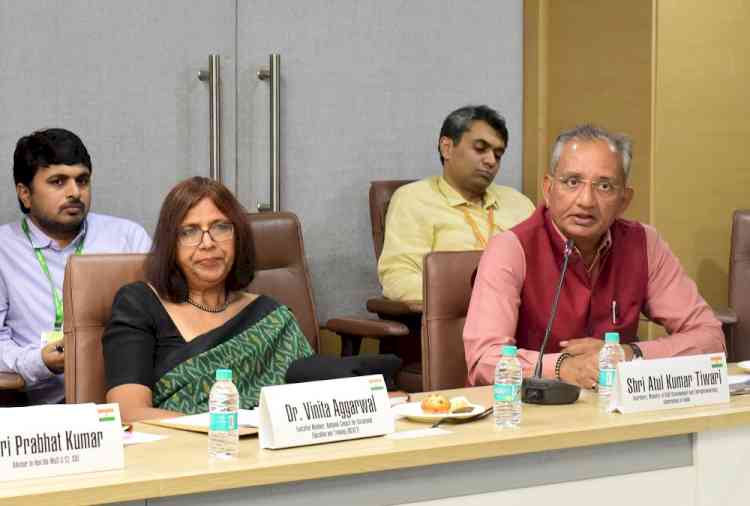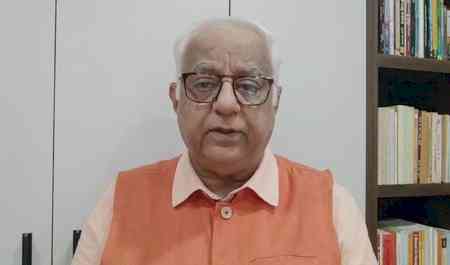Post Covid, organized retail will grow as it provides hygiene and safety to visitors: realtors
Realty experts feel that commercial segment will get impacted in short term but in long term things will come back to normal

New Delhi: Speaking at a webinar 'COVID 19 -- Retail Tales', aimed to discuss the strategies to overcome the crisis which has gloomed the booming retail sector in the country, realty experts felt that commercial segment will get impacted in the short term but in long term things will come back to normal. Mr Mohit Goel, CEO, Omaxe Ltd, said, "After Covid -19 organized retail will be much more preferred as against the local shopping areas which are crowded. Earlier people used to go back to next door crowded shopping areas but now things will change as people would look for places that are hygienic, and this is where malls and organized retail centres come into picture.”
Malls have been known to rely on events to increase footfalls but now with increasing social distancing norm the situation might turn out differently. Addressing the issue, Mr Abhishek Bansal, ED, Pacific Group, said, "Right now the focus is on how to make the shopper coming to the mall secure and safe. If shopping malls manage to do this in the first 15-30 days then they are the winners. In the long term malls are not just about shopping but are gathering places which will remain so in the time to come. Secondly, malls have the wherewithal to control safety aspects, number of people entering, sanitization etc. It is this controlled environment that build confidence for the customer."
Another topic of discussion at the webinar organized by ICCPL and Realty & More was the rent relief situation arising between developer and retailer. Mr Uddhav Poddar, MD, Bhumika Group, was of the view that "There can't be one size fit all formula for rental waivers in retail. It will depend on the relationship between the landlord and tenant, how they have been dealing in the past, how strong the retail brand is, and also on the local market dynamics. If the brand is strong, landlord would not want it to leave the property and might end up giving it additional waivers. If location is prime then the brand would not like to leave and might even pay higher rent. Both have to sit across the table and make strategy according to the shop and location. No strategy can work across geography of the country because each market, situation, and relationship is different."
Speaking on the increasing prominence of e-commerce giants during the lockdown and possible shift in retail going forward, Mr Nayan Raheja of Raheja Developers Ltd, said. "In short term we all are going through this but in the long term we have to understand that there is difference between greed and need based buying. Looking at situation it can be said that need based buying will boom and greed based buying will be a little slow for a couple of years. Offline and online buying is here to stay. Developers have to think out of the box and come up with projects that provide safety to the people.”
Discussion also took place on the trial room facility of apparel stores, which form a large part of a mall. With social distancing and hygiene becoming a norm, question was raised on trial of clothes by buyers at which retailers at the webinar informed that some brands are taking a call on putting the tried clothes back on the display only after sanitizing, dry cleaning or semi dry cleaning. However, it is little premature to talk about it as brands are still working on this aspect.
In China one of the outlets of French luxury brands locked sale of USD 2.7 million as people in China went out for shopping after a long lull of shopping as they were deprived of it. Asked to compare the two markets, Shopping Mall Professional Yogeshwar Sharma said that money will get diverted to shopping as there will be no foreign travel and conversion will be high as people coming to malls will buy. "Indian luxury retail market is small and cannot be compared to China. For example Inditex -- a company that owns brand Zara -- they opened 150 stores in China and still opening, whereas in India after opening 23 or 24 stores there is no market. In India upper end market is very small and people generally go out of the country to shop. But with no travel happening for next few months, money will get diverted to shopping. We are hoping people that conversion will be high as people coming to mall will be shop," he said adding that as of now retailers are bombarding us with requests for rental waiver as it is force majeur situation so we have deferred rentals by retaining the right of charging them without charging them.
Before the Covid-19 situation, organized retail was 10 per cent of the market and project led to grow at 20 per cent by 2025 but now people fear that projections might go all wrong. Disagrees Harshvardhan Rathore, Head of Retail (West), Saville India, when he said, "This pandemic is not a very long term scenario. Yes we might have been pushed by maximum 2 years but these retail projections are for long term and I don't see hindrance in the growth of organized retail segment."
In the time when people have become used to frugal living during lockdown, doubts were raised on people's psychological behaviour due to fear of going out. Mr Rathore said, "Yes there might be some deferment of the demand but it will not die. People will come back to malls and there is a certain segment of youngsters who dying to go to malls and willing to spend. Next 6-8 months cycle will tell us where we are heading. Shopping in India is feel joy factor."
He was of the view that cinema and entertainment part will pick up after some time.
The panelists comprising developers and retailers also requested that the property tax should be waived off as they have not been using the property. Then they also wanted clarity on deferment of EMIs as it is for three months and there is no clarity on how it will work whether three month's EMI has to be paid on fourth month or the tenure will get increased.


 cityairnews
cityairnews 








